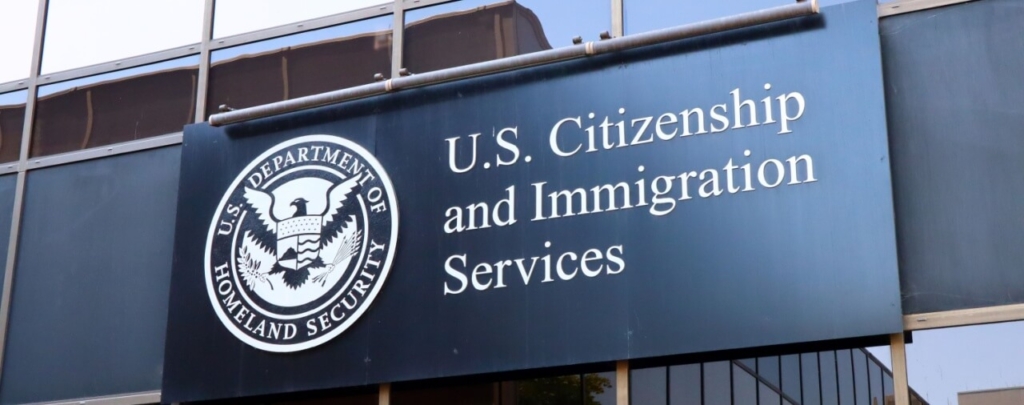Sessions Memorandum on Grants for “Sanctuary Jurisdictions”
On May 22, 2017, U.S. Attorney General Jeff Sessions issued a Memorandum [PDF version] regarding the implantation of Executive Order 13768, President Donald Trump’s Executive Order on interior enforcement [see article]. Specifically, Attorney General Sessions’ Memorandum addresses scenarios in which federal grants may be withheld from “sanctuary jurisdictions,” that is, jurisdictions that do not comply with 8 U.S.C. 1373 [PDF version].
The Sessions Memorandum quotes the pertinent provision — section 9(a) — of Executive Order 13768:
[T]he Attorney General and the Secretary [of Homeland Security], in their discretion and to the extent consistent with the law, shall ensure that jurisdictions that willfully refuse to comply with 8 U.S.C. 1373 (sanctuary jurisdictions) are not eligible to receive federal grants, except as deemed necessary for law enforcement purposes by the Attorney General and the Secretary. The Secretary has the authority to designate, in his discretion and to the extent consistent with law, a jurisdiction as a sanctuary jurisdiction.
Then, the Sessions Memorandum quotes from the pertinent portion of 8 U.S.C. 1373:
Section 1373 provides in part that state and local jurisdictions ‘may not prohibit, or in any way restrict, any government entity or official from sending to, or receiving from, [federal immigration officers] information regarding the citizenship or immigration status, lawful or unlawful, of any individual.
Attorney General Sessions determined that section 9(a) of Executive Order 13768 will only apply to federal grants administered by the Department of Justice or the Department of Homeland Security.
Attorney General made clear that section 9(a) will not apply to any other sources of federal funding. In so doing, he noted that the Executive Order provides that it may only be enforced “to the extent consistent with law.” Accordingly, it neither calls for nor permits grant conditions “that would violate any applicable constitutional or statutory limitation.” Furthermore, Attorney General Sessions noted that section 9(a) does not expand the authority of the Attorney General or the Secretary of Homeland Security, rather, it directs them to use their existing authority.
Going forward, the Department of Justice will require jurisdictions applying for certain Department of Justice grants to certify that they are in compliance with federal law as a condition for receiving an award. In some cases, this will include certification of compliance with 8 U.S.C. 1373. Attorney General Sessions determined that the certification requirement with respect to 8 U.S.C. 1373 “will apply to any existing grant administered by the Office of Justice Programs and the Office of Community Oriented Policing Services that expressly contains this certification condition and to future grants for which the Department [of Justice] is statutorily authorized to impose such a condition” (emphasis added). The Memorandum states that the certification requirement will be imposed consistent with the law and with any applicable court orders.
Attorney General Sessions determined, after consultation with Secretary of Homeland Security John Kelly, that for the purposes of section 9(a) of Executive Order 13768, the term “sanctuary jurisdiction” will apply only to jurisdictions that “willfully refuse to comply with 8 U.S.C. 13768.” Any jurisdiction that does not willfully refuse to comply with 8 U.S.C. 13768 will not be considered a “sanctuary jurisdiction” for purposes of section 9(a). However, Attorney General Sessions was careful to explain that this provision of the Memorandum applies only to the adjudication of grants under section 9(a). He noted that nothing in this Memorandum “limits the [Department of Justice’s] ability to point out ways that state and local jurisdictions are undermining our lawful system of immigration or to take enforcement action where state or local practices violate federal laws, regulations, or grant conditions.”
In the final passage of the Sessions Memorandum, the Attorney General stated that, in the future, the Department of Justice “may seek to tailor grants to promote a lawful system of immigration” where it is authorized to do so.
Consistency With Preliminary Injunction
On April 25, 2017, Judge William Orrick of the United States District Court for the Northern District of California issued a preliminary injunction against section 9(a) of Executive Order 13768 in County of Santa Clara v. Trump, Case Nos. 17-cv-00575-WHO (N.D. Cal. Apr. 25, 2017) [PDF version].
The Sessions Memorandum was drafted in a manner consistent with the decision in Santa Clara v. Trump. Essentially, the injunction prevents the Department of Justice from enforcing section 9(a) against federal grant recipients if the grant did not stipulate compliance with 8 U.S.C. 1373. It does not prevent the Department of Justice from revoking grants that do stipulate compliance with 8 U.S.C. 1373, which it had the authority to do before President Trump’s Executive Order. To this effect, Judge Orrick’s decision stated that “[t]his injunction does not impact the Government’s ability to use lawful means to enforce existing conditions of federal grants or 8 U.S.C. 1373, nor does it restrict the Secretary from developing regulations or preparing guidance on designating a jurisdiction as a “sanctuary jurisdiction.” Although the Department of Justice did not at any point indicate that it would enforce section 9(a) in a manner inconsistent with existing law and precedent, Judge Orrick’s stated reason for the injunction was the broad drafting of section 9(a), which appears to reach grants that do not stipulate compliance with section 9(a).
On April 21, 2017, the Department of Justice issued letters to several jurisdictions regarding noncompliance with 8 U.S.C. 1373 jeopardizing their receipt of federal grants that require such compliance [PDF version].
Analysis
Attorney General Sessions’ Memorandum is narrowly tailored. It will only seek to revoke Department of Justice and Department of Homeland Security grants that stipulated compliance with 8 U.S.C. 1373 at the time they were issued. This narrow interpretation of the otherwise broadly-worded section 9(a) of Executive Order 13768 is consistent with existing law. In short, it interprets President Trump’s Executive Order as directing the Attorney General and Secretary of Homeland Security to revoke grants of jurisdictions found to be in violation of 8 U.S.C. 1373 to the extent allowable under federal law and consistent with any judicial decisions.
The limited scope of the Sessions Memorandum means that it will not apply to very many grants or jurisdictions. Going forward, the most interesting thing to watch — aside from the potential for continuing litigation — is whether Congress will work with the Department of Justice to stipulate compliance with 8 U.S.C. 1373 in new law enforcement grants going forward, as the Attorney General suggested he would seek more often in the conclusion of the Memorandum.





